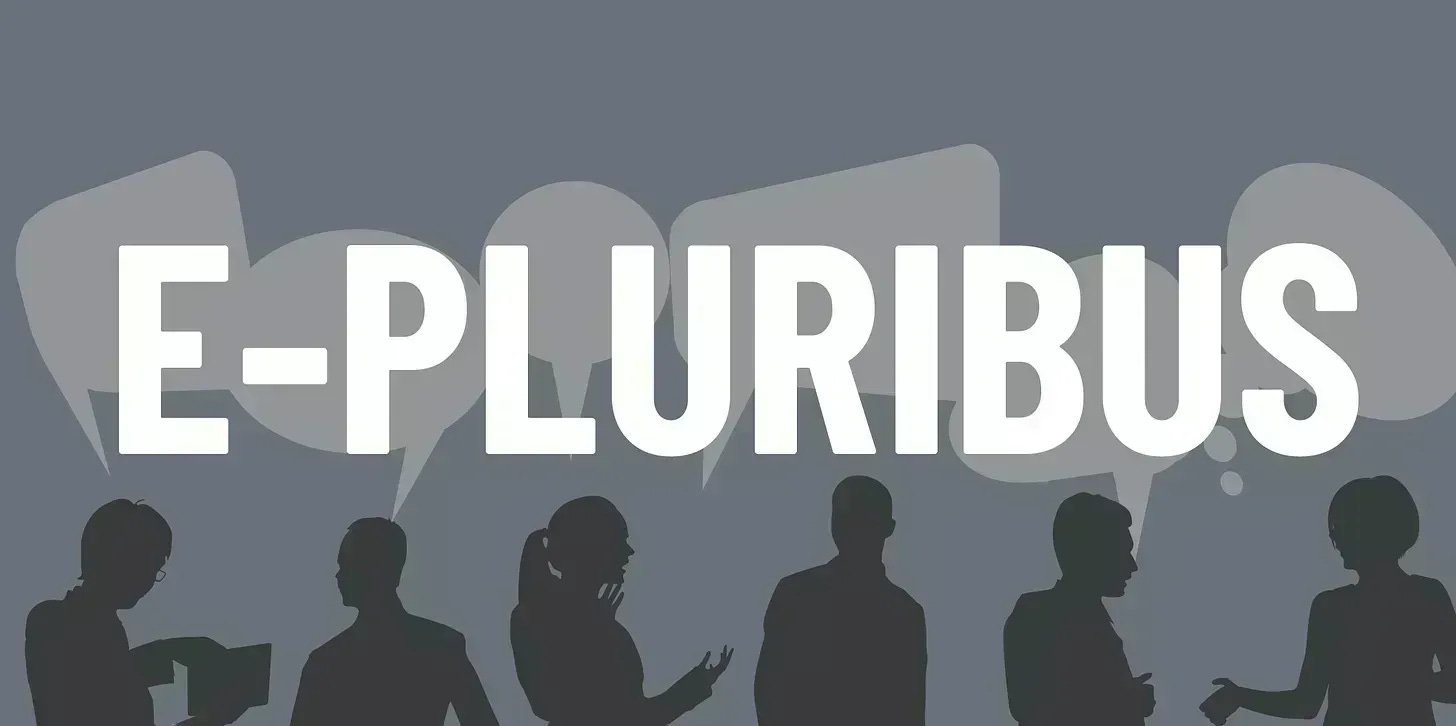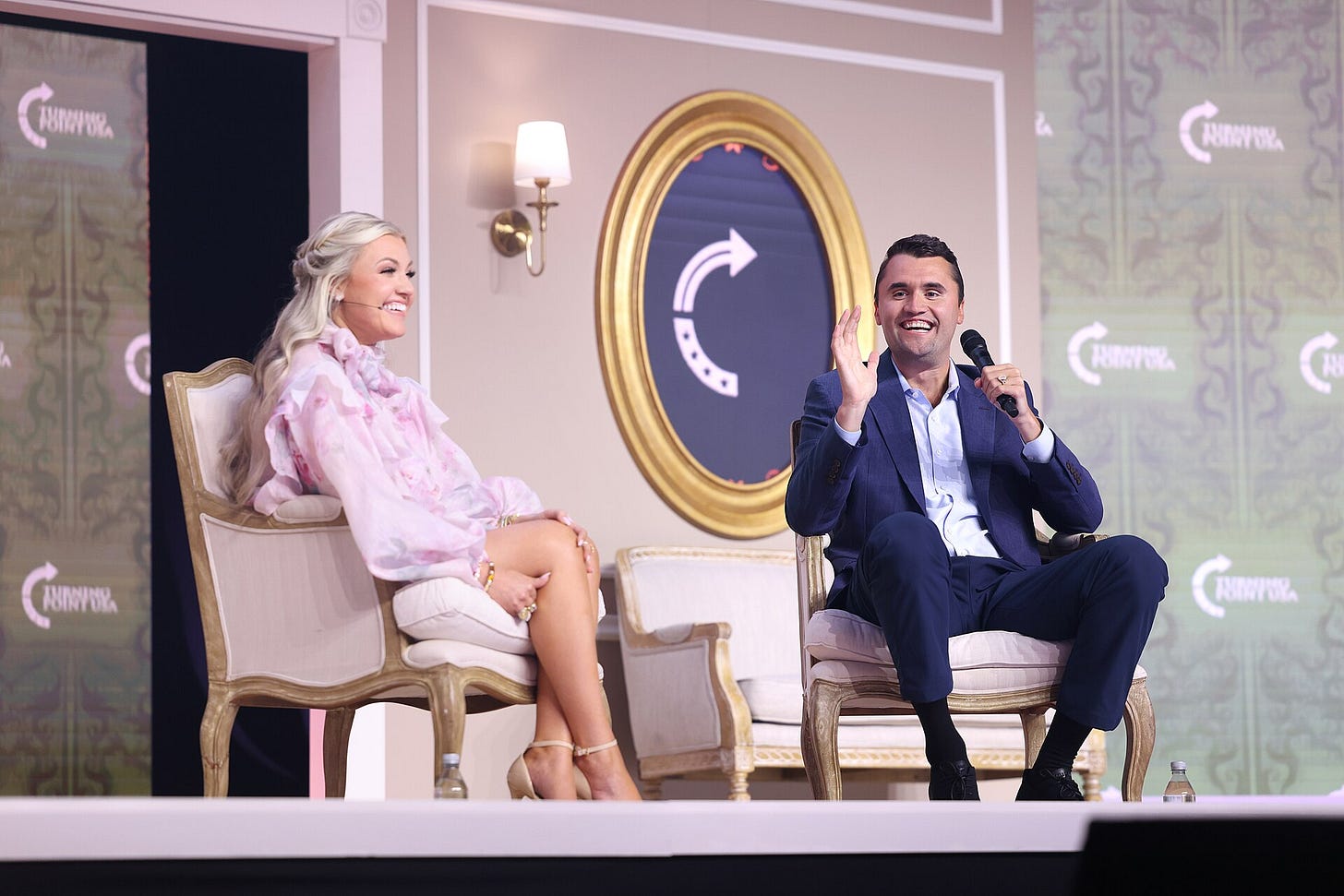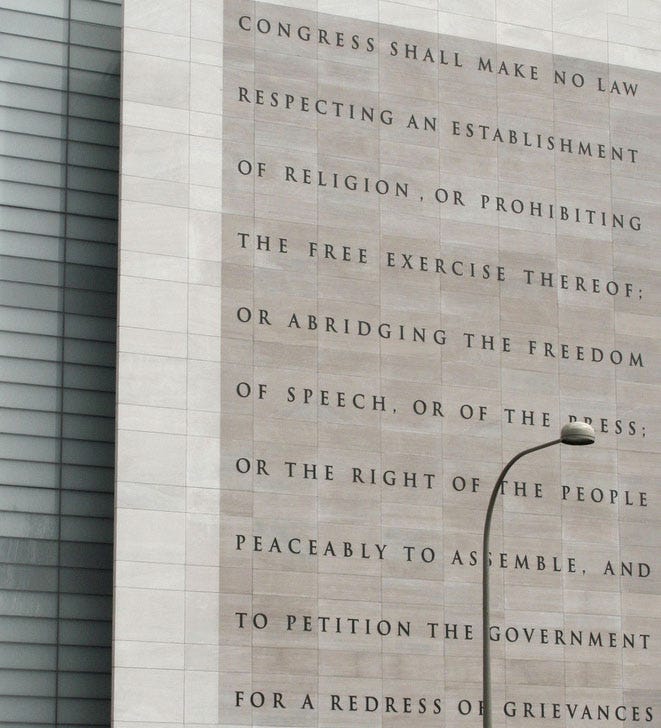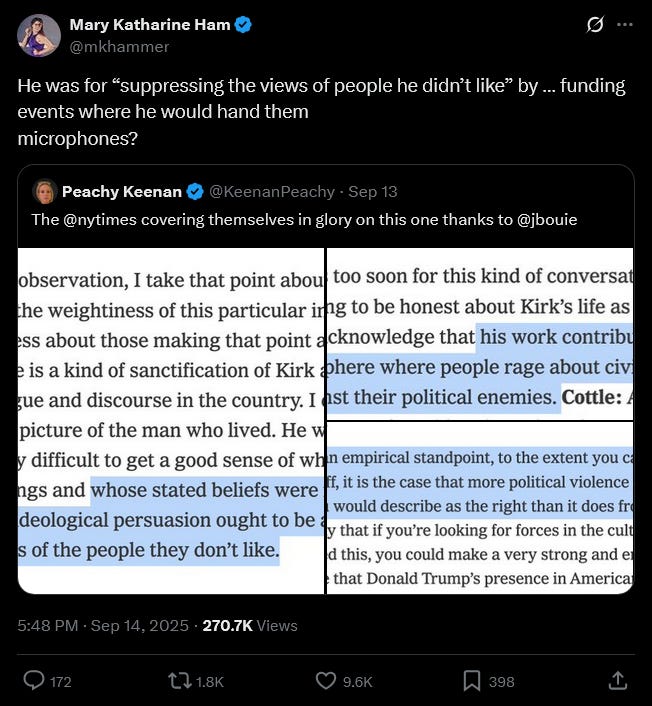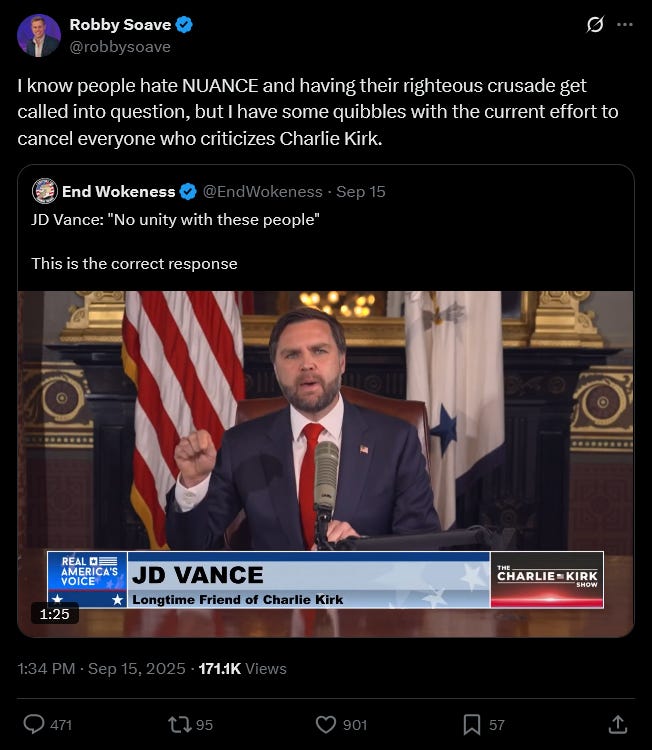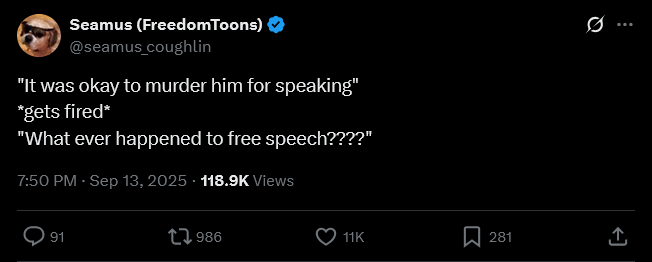E-Pluribus |September 16, 2025
Words still aren't violence. Promote 1A to remember Charlie Kirk. Civil discourse is the way forward.
A round-up of the latest and best insight on the rise of illiberalism in the public discourse:
Greg Lukianoff: Bury the ‘Words Are Violence’ Cliché
In the wake of Charlie Kirk’s assassination, more than a few of his detractors flooded the internet with vitriolic comments: they mocked his widow, celebrated that his kids would grow up fatherless and even re-enacted Kirk’s jerking movements in the seconds after he was shot. As despicable as these reactions are, they’re free speech and should be protected under the First Amendment, argues Greg Lukianoff:
When news broke of Charlie Kirk’s assassination, the reaction of thousands of young Americans online was one of delight. One TikTok user chuckled: “Live by the sword, die by the sword. He did say that gun deaths were an acceptable side effect of gun rights.” On X, someone wrote: “He is a fascist. Spreads hate, racism, bigotry, misinformation, gets shot. Reap what you sow.”
In the minds of these gleeful posters, Kirk deserved to die because of his words—words that allegedly promoted policies resulting in hate, violence, and even death. They think this way because they have forgotten—or have been trained to unlearn—a crucial distinction: Words are not bullets. Words can’t strike a man from 142 yards away, causing a torrent of blood to erupt from his wound, sending him first to the hospital and then to the morgue. Only bullets can do that.
Upholding that distinction is the North Star of everything I do as president of the Foundation for Individual Rights and Expression (FIRE). For years, I’ve warned that equating words with violence erases the bright line liberal societies drew after centuries of bloodshed. The law draws this line with precision. Advocacy, even vile advocacy, remains protected unless it is intended and likely to produce imminent lawless action.
Chris Rufo: Charlie Kirk Did It All the Right Way
As the world continues to reflect on the tragedy of last week, Chris Rufo at City Journal urges everyone to remember that Charlie Kirk was perhaps the biggest champion of free speech and opponent of political violence there is:
I did not know Charlie Kirk well. But I had met him in various green rooms, appeared on his radio program, and worked with him to find capable staffers for the Department of Education. He was always genuine, idealistic, and dedicated to the cause. I’m still astonished by all that he accomplished in such a short period of time. He built an enormous organization, turned himself into a media star, advised the president of the United States, and built a beautiful family—all by age 31.
When we are in the fray of day-to-day politics, it is easy to get consumed by each new headline and triviality. But Kirk’s death marks a pivotal moment, requiring deeper reflection. His life, and tragically his death, reveal some profound truths about the man and about America.
First and foremost, Charlie Kirk did it all the right way. He was a conservative willing to wade into controversial territory. But he was always guided by the idea that debate is the great clarifier and that, in a democratic society, persuasion is the primary means of political change. He set up tables on campus. He debated his opponents. And he believed he could win through the ballot box.
…
How should conservatives respond? First, by drawing a line that Kirk himself exemplified: debate is healthy; violence is unacceptable.
Josh Hammer: The Martyrdom of My Friend Charlie Kirk
An important conclusion follows from Rufo’s analysis: maybe the most important lesson to learn from Kirk’s death is that our civilization is in jeopardy. If we abandon civil discourse for violence—a temptation we’re clearly not immune to—we lose. Our only hope is to double down on our commitment to free speech. Josh Hammer, senior editor-at-large at Newsweek and a personal friend of Charlie Kirk, makes the case:
Charlie Kirk died, as so often seems to happen to the greats, doing what he loved: modeling civil discourse in the public battle of ideas. The living embodiment of the First Amendment in his tragically truncated life, Charlie died as a (literal) martyr for free speech.
He was murdered one day after the Foundation for Individual Rights and Expression released a discomfiting survey showing that one-third of university students believe violence is an appropriate response to speech. The celebratory reaction to Charlie’s assassination across swaths of left-wing social media was also positively chilling.
Not to put too fine a point on it, but: This is how republics die. A people that loses the ability to engage in civil debate and instead resorts to violence is a people no longer capable of republican self-governance.
…
We must … double down like never before in our commitment to free speech and the civil exchange of ideas. His martyrdom must galvanize younger conservatives like never before. We must not allow Charlie to have died in vain as a free speech martyr.
Around X
One of the strangest critiques leveled at Kirk, and by the New York Times no less, is that he tried to silence his political opponents. If that’s true, Mary Katharine Ham says he went about it all wrong:
Echoing many free speech advocates, Reason’s Robby Soave is irritated with conservatives who are trying to use Kirk’s death to cancel their political opponents:
Seamus Coughlin, the animator behind the popular YouTube channel FreedomToons, sees a double standard at work. The same people who celebrated Kirk being murdered for his speech are now complaining about being fired for their own speech.



